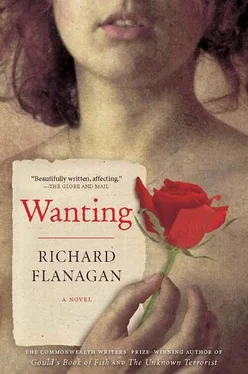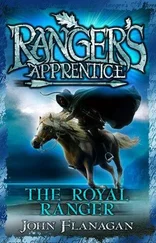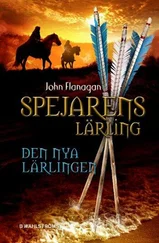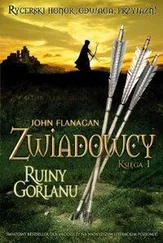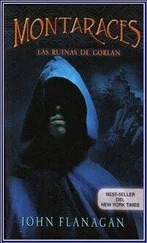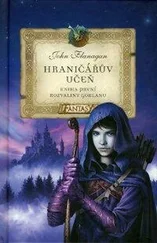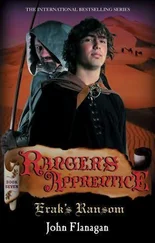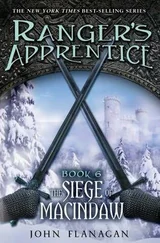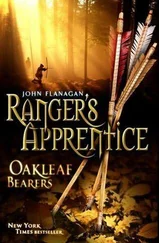Black Ajax told of how his armed party had ambushed Towterer and the greatly reduced remnants of his band in the midst of a storm, and he claimed Towterer had abandoned the child in order that he and his wife, Wongerneep, could escape.
Robinson recorded Black Ajax’s improbable story in his diary. But he didn’t believe it. He was confident Black Ajax had abducted the child to bait the trap. He admired his cunning and respected his diplomacy in concocting the story of abandonment.
The following day the weather had cleared not long after dawn: dirty clouds scurrying away to leave the sky an intense, if chill, blue. Changed, too, were Towterer’s people, who had grown surly and restless. Fearing they would escape, Robinson ordered his men to form lines either side of them, the tame blacks with readied spears and the whites with loaded guns. Under this armed guard, Towterer’s miserable people were marched to a standing camp at Hell’s Gates.
It pained Robinson to have to intimidate them. His head had ached from the necessity of it; his stomach had swirled at the sight of it.
‘ They are to me always ,’ he had written in his diary that evening, ‘ objects of the greatest commiseration .’
He felt the need to pray, but as he put down his quill, he felt a warm, squeamish sensation in the seat of his trousers and realised he had shat himself. He felt weak, but his mind was clear and calm. He determined to eat nothing until his stomach was once more firm; then he would head south to capture the last natives himself. He knew it would not be difficult. After all, he had their child.
At dawn two days later he set off with his son and four tame blacks, following the ground burnt by the Aborigines to construct their passageways through the forests and moors. They had only walked a day and a half when Towterer and Wongerneep were spied on a tableland. After ordering the rest of his party to lie down, Robinson approached them with just a black woman to act as a translator.
Towterer’s manner with Robinson was much changed from their first meeting. He seemed overjoyed to see the white man, and he told Robinson he regarded him as an old and dear friend. Finally Towterer asked about his daughter. Her name, he said, was Mathinna.
‘She is already learning prayer,’ Robinson told him. ‘Her future is bright indeed.’
Towterer said he esteemed Robinson in every respect equal to his own family. Towterer was inventing a new idea of equals with which to endure and, perhaps, to battle his subjugation. If it were an illusion, it was also an attempt to deny the terrible cost of reuniting with his stolen daughter.
‘I view you and yours no less,’ said Robinson. ‘So much so, I wish you to come with me and join with your daughter, and together we can embark on the miracle of a new life.’
If there had been something forced about Towterer’s effusive behaviour, Robinson could see that there was also something entirely genuine: an understanding that this was a new way in which they would henceforth behave towards one another. For Towterer wanted his daughter, and he was no fool, and Robinson wanted Towterer, and Robinson was Towterer’s only path back to his child. Robinson felt his stomach settling.
On a blustery morning four days later, the brig Gulliver —chartered to transport such natives as Robinson had captured to the growing Aboriginal settlement on distant Flinders Island—finally came into view, sails full with the warm northwesterly.
‘ They are to me always ,’ he began writing in his diary that night, glancing out of his tent at the pitiful remnants of a race waiting to be exiled from their native land. But he halted and crossed out this beginning. ‘ Capt Bateman arr. 5pm. Wind nnw ,’ he began again.
Bateman told him that thirteen blacks had died in as many days at the Flinders Island settlement. Robinson entered this in his diary, but not Bateman’s final comment.
‘They’re dying like flies.’
Bateman declared himself astonished with Robinson’s ongoing success. Robinson found his stomach, his head, his mood, improving markedly. He forgot about dancing under the southern lights.
‘ With me ,’ Robinson wrote, ‘ veni, vidi, vici applies .’
Wongerneep’s death, a year after they arrived at Wybalenna, rather than depressing her daughter, had the oddly opposite effect: the toddler became more friendly, more lively, more curious of what others were doing. And this in spite of the Protector’s fury when he discovered that, instead of a Christian burial in his cemetery, Towterer had taken Wongerneep’s body to the top of Flagstaff Hill and there built a fire on which he cremated his wife. Mathinna had watched the smoke rise towards the stars and make the moon tremble as, below, her mother charred and turned to ash.
Thereafter, Mathinna seemed always to be around the feet of adults, as if seeking a new mother, but even at such a young age she had the wit to be helpful rather than troublesome. And so she grew into a lively child who seemed unaffected by the growing gloom and listlessness that infected the settlement of Wybalenna, listening to her father’s stories of a cosmos where time and the world were infinite, and all things were revealed by sacred stories.
‘And this nigger, Mr Robinson,’ asked Sir John, ‘Tuttereramajig or whatever—you say he had majesty about his bearing?’
In answer, the Protector, his bowdlerised account of meeting Towterer complete, and having revealed almost nothing of what actually took place, stood up, went to a sideboard and picked up a straw-coloured wooden box that looked as if it had been made for a hat.
As though it were some sacred sacrament, he brought the box up into the candelabra light that radiated across the table.
‘It is the Van Diemonian timber, Huon pine,’ he said. ‘Made under my supervision by Marc Antony.’
There was a scraping of table legs on the wooden floor as the diners, like the tentacles of a startled sea anemone, pulled abruptly inwards to better see such a wonder.
‘He looked like a Saracen,’ said the Protector, ‘and carried himself like Saladin.’
He opened the box’s lid. The table stared wordless as an irreconcilable form shaped in and out of the greasy shadows, until finally it took on the undeniable reality of a human skull.
‘I give you King Romeo, last of the Port Davey kings.’
After several moments of low murmuring, Lady Jane, delighted with her gift, and even more so with the story of its provenance, which established their skull—as she now thought of it—as one of the finest specimens of its race, thanked the Protector for ‘such an especial gift’ and grew animated.
‘And this King Romeo,’ she said, ‘he was the father of that pretty little girl we saw dancing earlier this afternoon?’
‘He was,’ said the Protector.
‘And that dear little girl then has neither mother nor father, nor family?’
‘She has family, Ma’am, but none immediate. They think of such things more loosely and more intricately than we. For us family is a string, for them it is lace.’
‘She is an orphan, though.’
‘By our reckoning,’ said the Protector, ‘she is an orphan.’
‘No one can doubt your good work here, Mr Robinson,’ said Lady Jane more loudly, as outside one dog began barking, then another and another, until the whole settlement’s seemingly infinite population of half-starved curs was yelping. ‘But what firmer proof of the worth of your approach could be demonstrated than to raise just one individual with every advantage of class and rank?’ She turned to her husband. ‘Don’t you think so, Sir John?’ she yelled.
Sir John mumbled a startled assent, the dogs ceased yowling, and, settling into a steadier, more assured rhythm of speech, Sir John declared that it would be an experiment of the soul worth making, both for science and for God.
Читать дальше
